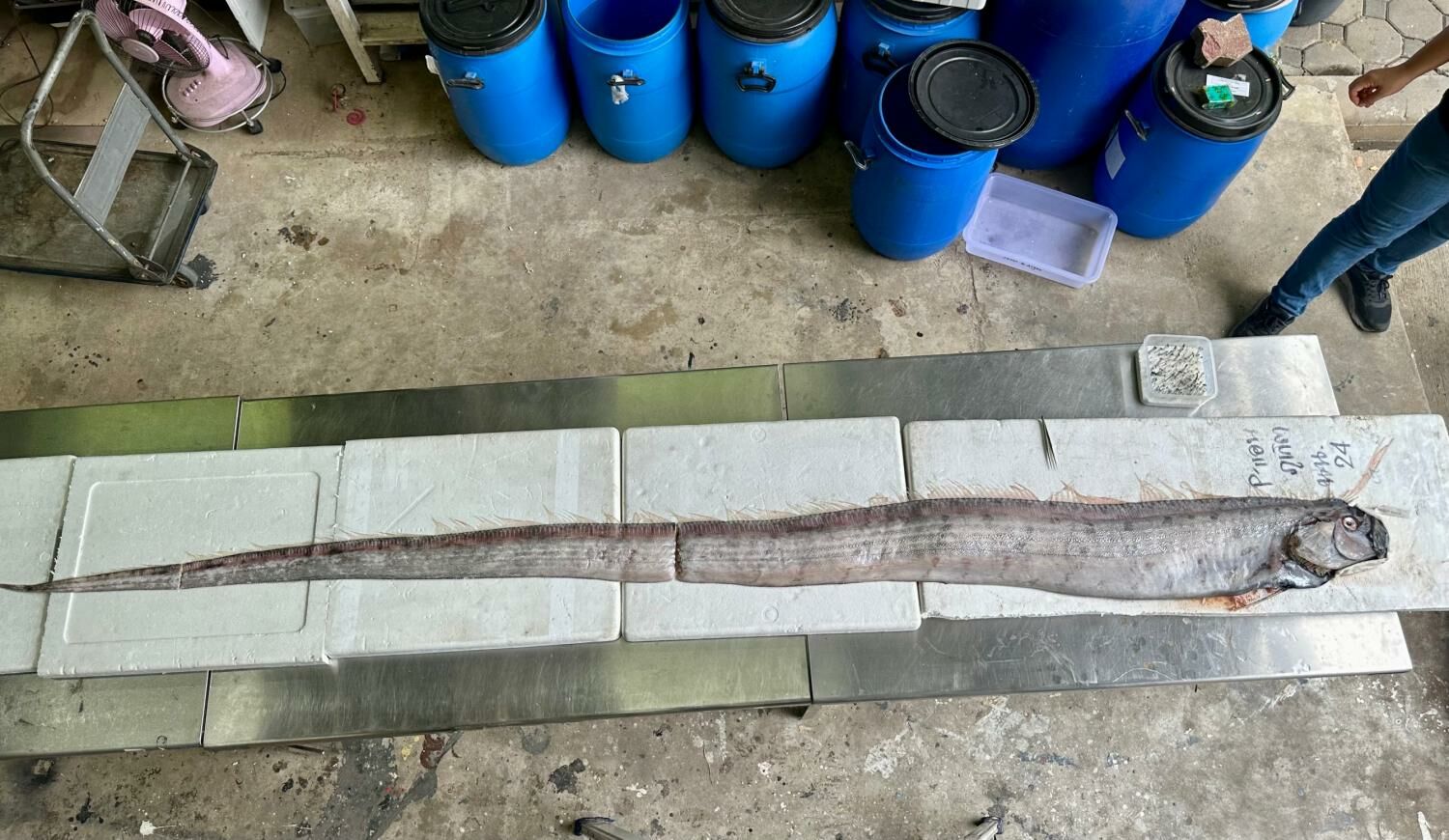Rare oarfish carcasses found in Thailand to be exhibited post study

Two oarfish carcasses recently discovered in Thailand are currently under examination by the National Science Museum (NSM) Foundation. Once the investigation is finished, the remains will be showcased at an exhibition.
Supamas Isarabhakdi, the Minister of Education, Science, Research and Innovation, said yesterday that the first oarfish carcass was discovered near Patong Beach, Phuket on February 15. Local fishermen located the remains around 8 nautical miles off the coast. The preliminary assessment revealed that the fish was 2.85 metres long, weighed 8.6 kilogrammes and was in relatively sound health, barring a minor head wound, reported Bangkok Post.
This is the second time this year that the carcass of this rare deep-sea creature has surfaced in Thai waters, with the first occurrence in early January in Satun province.
The Minister has instructed Rawin Raviwongse, the President of NSM, to undertake a thorough study of the oarfish remains. She emphasised the rarity of the species and the necessity for Thailand to maximise the opportunity to learn more about the fish from these carcasses.
She further stated that the investigation would yield vital insights that could be of future benefit. Additionally, the exhibition of the remains would provide Thais with a chance to gain knowledge about this rare species.
At present, the NSM is preserving and studying both oarfish carcasses.
Assistant Professor Rawin confirmed that the oarfish remains would be preserved using the most suitable techniques post-study, as they are considered national treasures. He added that the Thai populace would have the opportunity to witness these rare creatures in their actual forms.
Early this year, a rare Oarfish, discovered near Adang Island, Thailand, fascinated researchers with its appearance. The massive marine creature, known for its serpent-like form, was found by a fishing vessel. Experts debunked myths surrounding the Oarfish, clarifying its presence as likely due to illness or oceanic currents, not seismic activity. Samples were collected for further study by the National Science Museum.
Latest Thailand News
Follow The Thaiger on Google News:


























